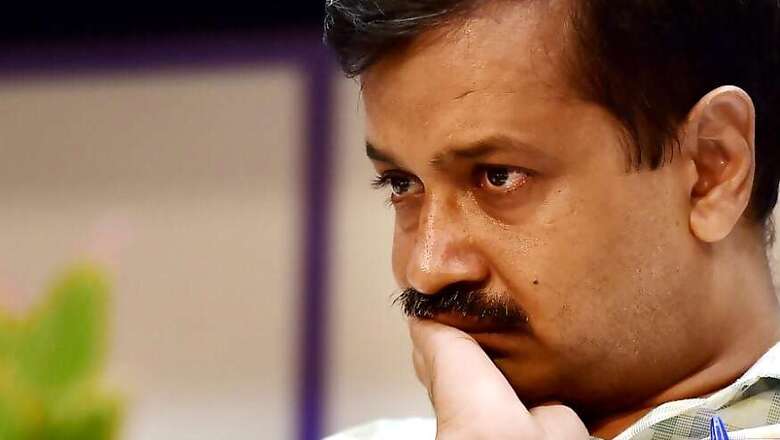
views
The recommendation made by the Election Commission of India to the President to disqualify 20 Delhi MLAs of the Aam Aadmi Party (AAP) is not suspect. Rather, it’s the delay by the Election Commission in giving the opinion which raises eyebrows.
The matter was referred to the poll panel by former president Pranab Mukherjee more than two years ago and the opinion has come now, only after Delhi Congress chief Ajay Maken met the Election Commission chief and registered protest over the delay for no palpable reason.
It’s important to understand the context of the appointment of 21 Parliamentary Secretaries to various ministers by Delhi Chief Minister Arvind Kejriwal way back in 2015.
Soon after the AAP registered a resounding victory in the 2015 Assembly elections with 67 of the 70 Assembly seats, the party was visited by major dissension by founders Prashant Bhushan and Yogendra Yadav.
In order to save the Legislature Party from the fallout of the duo’s expulsion, the AAP leadership decided to hand out ‘lollipops’ to its MLAs. These ‘lollipops’ were plum positions of Parliamentary Secretary to the Ministers.
Since the National Capital Territory (NCT) Act restricts the size of the Council of Ministers to seven, including the chief minister, the leadership had to ‘satisfactorily accommodate’ the newly elected members to some position, lest they joined ranks with the ousted leaders.
Though Delhi had the practice of having Parliamentary Secretary, it remained limited to just one MLA acting more or less as legislative assistant to the Chief Minister. It started during the term of Sahib Singh Verma sometime in 1996-97, who had appointed Nand Kishore Garg to the said position.
During Sheila Dikshit’s chief ministership, Ajay Maken was the first Parliamentary Secretary and later this position was occupied by likes of Ramakant Goswami and Naseeb Singh.
The amendment made in the Delhi MLA (Removal of Disqualification) Act 1997 at that point in time was again limited to providing Parliamentary Secretary only to the Chief Minister and not the other ministers. It was much later — almost towards the end of Dikshit’s third term — that the number was increased to five.
While Kejriwal was appointing these 21 MLAs to this office, the bureaucracy had referred to him the same Delhi MLA (Removal of Disqualification) Act 1997, which lists all positions that are exempted from holding office of profit. The position of Parliamentary Secretary was not part of these exemptions.
It’s not that the AAP leadership did not realise the gravity of the matter. It did try to cover lost ground by bringing in an amendment to the Delhi MLA (Removal of Disqualification) Act 1997 in June 2015.
However, the move came only on June 24, a week after advocate Prashant Patel petitioned the President.
The amendment bill sought to give protection from retrospective effect.
The bill was pushed through the Assembly without mandatory approval of the Lieutenant Governor for creating such positions, which entails fresh expenditure. As expected, it failed to get the President’s assent as it violated the spirit of the Constitution, NCT Act and Supreme Court orders passed in the matter. The President, in due course, referred the matter to the Election Commission for opinion.
Meanwhile, the AAP leadership moved the Delhi High Court against any move to disqualify the 21 MLAs. The High Court, after due hearings in September 2016, set aside the appointment of these Parliamentary Secretaries, following which the poll panel issued show cause notices to these legislators.
To say that AAP MLAs were not heard would be incorrect as the poll panel waited for the outcome of the High Court petition before moving ahead in the matter.
On June 24 last year, the Election Commission finally rejected the plea of these MLAs to drop the case against them. The poll panel could not have dropped the case against them as its job was limited to the opinion which the President had asked for. But what took the commission so long to articulate the opinion after rejecting the pleas is something worth pondering over.
(The writer is senior journalist. Views are personal)




















Comments
0 comment